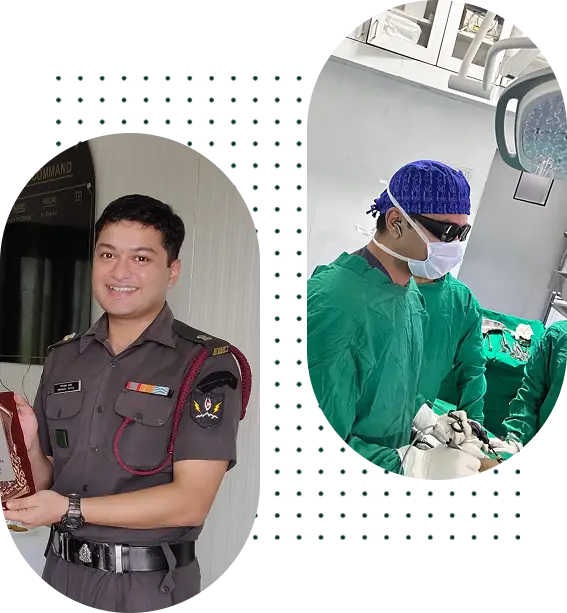Prostate Cancer Doctor in Kolkata
You’re probably thinking that it’s just frequent urination or signs of ageing.
But what if it’s not?
Prostate cancer often hides behind regular symptoms. For many men, the warning signs appear too late. If you’re facing symptoms or feeling unsure, consult Dr. (Maj) Ranajoy Dutta, a trusted prostate cancer surgeon in Kolkata.
What is Prostate Cancer?

Prostate Cancer Types

Acinar Adenocarcinoma
The most common type of prostate cancer, originating in the glandular cells of the prostate.

Ductal Adenocarcinoma
It is a rare type that develops in the ducts of the prostate and tends to be more aggressive than acinar adenocarcinoma.

Small Cell Prostate Cancer
A rare and aggressive form of prostate cancer that originates in neuroendocrine cells, often with a rapid progression.

Transitional Cell Carcinoma
This type begins in the cells lining the urinary tract, which can also affect the prostate.

Squamous Cell Carcinoma
It is an uncommon and aggressive form of prostate cancer that arises from squamous cells in the prostate, often associated with advanced stages.
Prostate Cancer Causes
Genetic mutations (like BRCA1/2)

Call for Appointments
Begin your treatment journey with expert care. Schedule your appointment with Kolkata’s esteemed cancer specialist Dr. (Maj) Ranajoy Dutta today.

Prostate Cancer Symptoms
Painful ejaculation
Discomfort in the pelvic area or lower back
Many symptoms overlap with non-cancerous prostate issues. But if they persist, discuss your concerns with Dr. Ranajoy Dutta.

Prostate Cancer Diagnosis

PSA (Prostate-Specific Antigen) blood test

Digital rectal exam (DRE)

MRI and prostate biopsy

Bone Scan
Prostate Cancer Treatment in Kolkata
Prostate cancer treatment depends on the cancer’s stage and your health condition. Dr. Ranajoy offers active supervision for slow-growing tumours, surgical removal of the prostate (radical prostatectomy), radiation therapy to destroy cancer cells, hormone therapy to reduce male hormone levels, or advanced targeted drug therapy for advanced-stage cancers that have spread. After accurate staging and grading, he decides whether active surveillance, surgery, or combination therapy is best for your case.
Fill The Form
Contact Form

Make Appointment &
Take Care Of Your
Healthy Life

Got Questions? We’ve Got Answers.
Is frequent urination always a sign of prostate cancer?
Can prostate cancer be cured completely?
Is surgery the only option?
No. Some patients benefit from non-surgical routes like radiation or hormone therapy. Dr. (Maj) Ranajoy Dutta plans prostate cancer treatment after evaluating individual cases.
